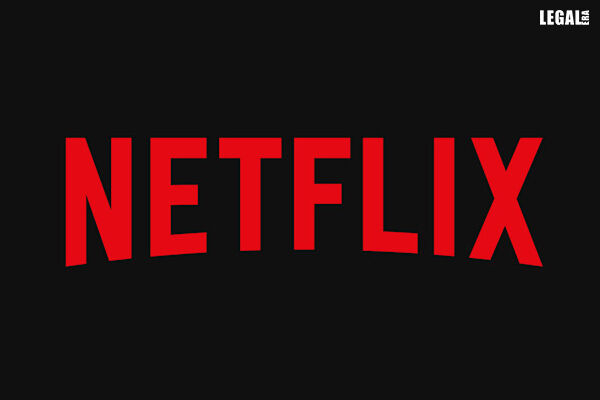
ITAT Mumbai Strikes Down ₹445 Crore Tax Hit on Netflix India: Says ‘Streaming Access Is Not Royalty, Nor Risk-Bearing Enterprise
Introduction
The Income Tax Appellate Tribunal (ITAT), Mumbai, has set aside a ₹445 crore transfer pricing adjustment imposed on Netflix India for the financial year 2021–22, decision in favour of the streaming platform and rejecting the Revenue’s characterization of the company as a licensee of Netflix US’s intellectual property. The bench, comprising Judicial Member Amit Shukla and Accountant Member Renu Jauhri, found that attributing such massive revenues to Netflix India violated the principles of transfer pricing and economic ownership.
Factual Background
Netflix India, a subsidiary of the US-based Netflix Inc., was assessed by the Indian Revenue authorities for the financial year 2021–22. The authorities treated the Indian entity as a licensee of Netflix US’s content library and streaming technology. On that basis, they imposed a ₹445 crore transfer pricing adjustment, arguing that Netflix India owed higher taxes in the form of deemed royalties and license fees. Netflix India, however, maintained that it functioned merely as a distributor providing access to the streaming service to Indian customers and did not own, license, or control any intellectual property or technology related to the content or platform.
Procedural Background
The Transfer Pricing Officer (TPO) had proposed the ₹445 crore adjustment in 2021, which was later confirmed by the Dispute Resolution Panel (DRP) on 28 September 2024. The DRP described Netflix India as an “extremely significant contributor” to Netflix’s global operations, taking on investment and business risks, and thus liable for royalty payments. Consequently, a final assessment order was issued on 25 October 2024. Netflix India challenged the order before the ITAT, contending that the adjustment lacked both factual and legal basis.
Issues
1. Whether Netflix India could be characterized as a licensee of Netflix US’s intellectual property, thereby liable for royalty taxation.
2. Whether the Transfer Pricing Officer was justified in attributing 43% of global subscription revenue to Netflix India.
3. Whether Netflix India’s use of the Transactional Net Margin Method (TNMM) was appropriate for determining the Arm’s Length Price (ALP).
Contentions of Parties
Assessee (Netflix India): Netflix India argued that it merely facilitated distribution and marketing of Netflix services in India. The company emphasized that it neither owned nor licensed any content, technology, or intellectual property. Its inter-company agreement clearly stated that Netflix India had no rights over content, trademarks, or streaming infrastructure. It further clarified that its Open Connect Appliances (OCAs) were limited to caching data for efficiency, without processing customer information or algorithms. Netflix also contended that its fixed 1.36% profit margin adequately reflected an arm’s length transaction.
Revenue (Income Tax Department): The Revenue argued that Netflix India’s role extended beyond mere distribution and that it functioned as a licensee of Netflix’s proprietary content and technology. It claimed that Netflix India derived economic benefits from intellectual property owned by Netflix US and should thus pay corresponding royalties. The department justified attributing 43% of Netflix’s global subscription revenue to India, contending that Netflix India was a “key operating entity” contributing substantially to global revenues.
Reasoning and Analysis
The ITAT rejected the Revenue’s interpretation, calling it an “overreach” inconsistent with the functional reality of Netflix India’s operations. The Tribunal observed, “To attribute 43% of global subscription revenue to an entity that neither owns nor develops the underlying content or technology is to violate the symmetry between function, asset, and risk — the triad that defines economic ownership.” It found the TPO’s reasoning contradictory, as the officer simultaneously acknowledged that Netflix India lacked access to content while concluding that it provided the entire “Netflix Service.” The Tribunal emphasized that Netflix India’s business model, limited to marketing and subscriber management, justified the use of TNMM for determining its arm’s length profit margin. Since Netflix India bore no content or technology risk, it could not be treated as an intellectual property licensee. The ITAT also found fault with the DRP’s findings, holding that they reflected an “outcome-driven approach” unsupported by evidence.
Implications
The ITAT’s decision reinforces the principle that transfer pricing adjustments must align with the actual functions, assets, and risks assumed by the assessee. It underscores that the mere use of technology or global branding does not automatically imply ownership or licensing of intellectual property for taxation purposes. The ruling offers significant relief to multinational digital platforms operating in India, affirming that local subsidiaries performing limited functions cannot be subjected to inflated tax assessments based on deemed royalty theories.
Order
The ITAT, Mumbai, set aside the ₹445 crore transfer pricing adjustment and deleted the entire addition made against Netflix India. The Tribunal held that the company’s transactions were at arm’s length and that no royalty or license fee was payable under Indian tax laws.
In this case the assessee was represented by Mr. Porus Kaka, Mr. Divesh Chawla and Mr. Harsh Shah, Advocates. Meanwhile the revenue was represented by Mr. Pankaj Kumar, Advocate.